- myFICO® Forums
- FICO Scoring and Other Credit Topics
- Understanding FICO® Scoring
- Re: How does FICO know to penalize for not doing A...
- Subscribe to RSS Feed
- Mark Topic as New
- Mark Topic as Read
- Float this Topic for Current User
- Bookmark
- Subscribe
- Mute
- Printer Friendly Page
How does FICO know to penalize for not doing AZEO??
Is your credit card giving you the perks you want?
Browse credit cards from a variety of issuers to see if there's a better card for you.
- Mark as New
- Bookmark
- Subscribe
- Mute
- Subscribe to RSS Feed
- Permalink
- Report Inappropriate Content
Re: How does FICO know to penalize for not doing AZEO??
@Anonymalous wrote:
@mortimerwereback wrote:Yea that make sense @GZG. I could see it tracking across months... If a balance is reported in a given month and then the next month it goes to all zero, it would mean that each month is counted individually, and one wouldn't be "all zero" until the last card reports for a given month. Because there has to be something tracking balances and a trigger for 0.00.
That's a really good question regarding your April. Kinda ties into my question about this month. Both are related to how FICO's algorithm tracks "all zero" or balances. I guess you'd see one of two actions: 1. the day the $10 balance reports in April, the algorithm recognizes you are "no longer" all zero and perhaps you get a few points, or 2. No score changes will occur until your second and third cards generate statements.
But the more I think about, after reading @SouthJamaica's reasonings, the more I think any point increase or decrease is triggered soon after a card goes to $0.00, lets say it was the last card carrying a balance (as in my case). OR in your case, after all cards have been zero, a card suddenly reports a balance, and then a few days later you're given a few points. If not, it would mean that FICO was tracking each calendar month individually. Which I feel like wouldn't make sense since score increases and decreases always take into account recent history. For example, I have two EX inquiries and I get a third and my score gets dinged. Or I have a balance, and I reduce it to below 49% aggregate and I receive a point increase.
I really hope that the small charge I put on my Navy MR clears before the 14th midnight. I put the charge around 1 am EST on the 12th. Else, I'm gonna see a -20pt drop again across my FICO 8s (if what I wrote above is how AZEO functions). Which is going to suck big time. Crossing fingers!
You're stuck on this idea of months, but that's not how credit scores work. A credit score is an instant in time. When someone pulls your report, a score is generated in that moment. If someone else requests your score 2 seconds later, a completely new score is generated. There isn't this score in the background that periodically updates. It's more accurate to say that, in between requests, you don't have a score.
The way credit reporting services work might be causing some confusion, because the bureaus apparently send push notifications when there's a significant change to your report, like a new card reporting. But if one of those trigger events results in the credit monitoring service requesting a score, it's still based on that instant in time. If someone pulls your report in between trigger events, the score that's generated for them might be different than the score was generated for either of the bracketing trigger events, because there are scoring components that don't trigger notifications (like passing an age threshold).
And even if your Navy card reports as $0, does it really matter? If no lender pulls your score in the couple weeks before your FNBO card reports, then nobody will know (or care) that your score would have been a little lower if they did pull your report in that interval.
Separately, I can confirm that my Navy More Rewards definitely counts for AZ and AZEO purposes, as well.
Thanks for your input @Anonymalous. Lots of good insights!!
Yes, it matters as I'm rebuilding and I'd previously received an "all zero" penalty and it was a large point drop after months of hard work that has still not fully recovered. And so, absolutely, I'd like to not have it happen again if I can help it. Your statement is precisely why I'm asking this question. No lender is going to pull my report before FNBO reports and so I agree with you there, but that does not change the fact that if left at all zero, I will receive a penalty. The question is the when (snapshot in time, monthly, however it's tracked). And if that penalty happens after Navy reports, but before I can let a balance report on FNBO then, it's going to suck big time finally being in the 670+ for FICO 8s only to drop back down to 655+, dragging everything else down with it.
With that all said, it's not the end of the world, I get it. ![]() But what's been extremely gratifying for me in this rebuild has been maintaining a score, and then levelling it up a few points, and then rinse and repeat. And that's what gotten 2 of 3 of my FICO 9s in the 700+ range, which ultimately was (I believe) the reason for many of my approvals. The little wins matter so much that the big dips really take the wind out of your sails.
But what's been extremely gratifying for me in this rebuild has been maintaining a score, and then levelling it up a few points, and then rinse and repeat. And that's what gotten 2 of 3 of my FICO 9s in the 700+ range, which ultimately was (I believe) the reason for many of my approvals. The little wins matter so much that the big dips really take the wind out of your sails.
- Mark as New
- Bookmark
- Subscribe
- Mute
- Subscribe to RSS Feed
- Permalink
- Report Inappropriate Content
Re: How does FICO know to penalize for not doing AZEO??
@Jordan23ww wrote:For me I get a new MyFico 3 Bureau report at the beginning of each month. As long as I have a balance by the 1st day of the month I don't get a $0 balance penalty. I once switched the cards I use for AZEO, I paid off the normal card and posted a balance on the new card I wanted to use. The old card's closing date is the 25th and the new card's closing date is the 2nd day of the month. When I was eligible for a new report the new card hadn't reported. I ended up getting the $0 balance penalty that month. So I feel like the algorithm bases the penalty on whatever your balances are on the first day of the month.The following month I got the points back once the new credit report came out showing my new AZEO card's balance.
Hmm... that's really interesting. Thanks for sharing @Jordan23ww. That'd give me some breathing room to let my FNBO or my other Navy Fed report a balance. I'll most certainly keep an eye out. I just checked and I receive my updates on the 8th or 9th monthly and Navy Fed MR is the second card to report so it'd sure be nice if that's how it works.
- Mark as New
- Bookmark
- Subscribe
- Mute
- Subscribe to RSS Feed
- Permalink
- Report Inappropriate Content
Re: How does FICO know to penalize for not doing AZEO??
I'm no expert, but here's my 2 cents simply put....
Statement Dates matter. Reporting Date matters. Typically, the statement balance is what gets reported. When it reports matter. Typically for normal credit cards 3-4 days after statement cut date. Apple Card.... up to 3 weeks maybe after statement cut.
FICO scoring calculates how many accounts (revolvers in this discussion) with balances. If a balance hasn't been reported yet, then last months balance or no balance would still count. Whether there was a balance or not affecting the instant in the moment score generated.
Hope it makes sense. Statement balance or no balance are good until updated again. Based on my understanding.










Goal: FICO 700+
- Mark as New
- Bookmark
- Subscribe
- Mute
- Subscribe to RSS Feed
- Permalink
- Report Inappropriate Content
Re: How does FICO know to penalize for not doing AZEO??
@mortimerwereback wrote:Thanks for your input @Anonymalous. Lots of good insights!!
Yes, it matters as I'm rebuilding and I'd previously received an "all zero" penalty and it was a large point drop after months of hard work that has still not fully recovered. And so, absolutely, I'd like to not have it happen again if I can help it. Your statement is precisely why I'm asking this question. No lender is going to pull my report before FNBO reports and so I agree with you there, but that does not change the fact that if left at all zero, I will receive a penalty. The question is the when (snapshot in time, monthly, however it's tracked). And if that penalty happens after Navy reports, but before I can let a balance report on FNBO then, it's going to suck big time finally being in the 670+ for FICO 8s only to drop back down to 655+, dragging everything else down with it.
With that all said, it's not the end of the world, I get it.
But what's been extremely gratifying for me in this rebuild has been maintaining a score, and then levelling it up a few points, and then rinse and repeat. And that's what gotten 2 of 3 of my FICO 9s in the 700+ range, which ultimately was (I believe) the reason for many of my approvals. The little wins matter so much that the big dips really take the wind out of your sails.
Some of your worries seem based on misapprehensions. Utilization has no memory. It's not true that you're still recovering from an all zero penalty that happened months ago. That penalty was completely gone, erased as if it never existed, the moment a new balance reported on one your cards. If your score is lower now, it's because something else in your file changed.
I can understand your concerns. While I'm a new file not a rebuilder, we both have to deal with wild fluctuations of our scores, and lack the buffer that thick, aged files with a strong credit history take for granted. When I started with my first card last year, I kept my utilization at 1% (challenging when even a $20 charge bumped it to 7%), and once I got enough cards I religiously practiced AZEO.
But since I wasn't planning on applying for new credit, I began experimenting. Letting 2 (out of 3) cards report with a balance only cost me a handful of points, not enough to worry about. Even if I let all three cards report, it's not that bad. The AZ penalty is bigger, but if I start AZEO, go all AZ, and then go back to AZEO, my score rebounds almost exactly (within a point). This helped me get a lot more comfortable with my scores, and showed me what I need to be careful with, and what I don't have to worry about.
For instance, this month I let one card report with a balance of over 50%. That did drop my score quite a bit. And I let it happen, even knowing I'm going to apply for a new card next month. I did that because I know that now that the charge is paid off, later this month the lender will report a much more modest balance, and my scores will rebound to their normal levels.
It's safe to experiment like this, because utilization has no long-term effects in any of the scoring models that are actually being used. (It might have an effect in FICO 10T, which looks at trends in utilization, but I don't think even a single lender uses that model yet. And even that model seems more concerned with steadily rising balances than anything else.)
You're on the borderline in terms of scores, so I wouldn't do anything crazy, like letting a card report an extremely high balance. There's always a chance that one of your existing lenders will do a soft pull account review in that interval. But AR pulls are really just monitoring for red flags, so unless you're suddenly maxing out most of your cards, it should be fine.
But if you're not planning on applying for credit, now's the time to get a feel for how your scores react when you change utilization. You can play with small differences in utilization, passing thresholds on single cards, letting multiple cards report, and so on. You could consider this current situation as the start of your experiments, testing the effect of AZ.
- Mark as New
- Bookmark
- Subscribe
- Mute
- Subscribe to RSS Feed
- Permalink
- Report Inappropriate Content
Re: How does FICO know to penalize for not doing AZEO??
@Anonymalous wrote:
@mortimerwereback wrote:Thanks for your input @Anonymalous. Lots of good insights!!
Yes, it matters as I'm rebuilding and I'd previously received an "all zero" penalty and it was a large point drop after months of hard work that has still not fully recovered. And so, absolutely, I'd like to not have it happen again if I can help it. Your statement is precisely why I'm asking this question. No lender is going to pull my report before FNBO reports and so I agree with you there, but that does not change the fact that if left at all zero, I will receive a penalty. The question is the when (snapshot in time, monthly, however it's tracked). And if that penalty happens after Navy reports, but before I can let a balance report on FNBO then, it's going to suck big time finally being in the 670+ for FICO 8s only to drop back down to 655+, dragging everything else down with it.
With that all said, it's not the end of the world, I get it.
But what's been extremely gratifying for me in this rebuild has been maintaining a score, and then levelling it up a few points, and then rinse and repeat. And that's what gotten 2 of 3 of my FICO 9s in the 700+ range, which ultimately was (I believe) the reason for many of my approvals. The little wins matter so much that the big dips really take the wind out of your sails.
Some of your worries seem based on misapprehensions. Utilization has no memory. It's not true that you're still recovering from an all zero penalty that happened months ago. That penalty was completely gone, erased as if it never existed, the moment a new balance reported on one your cards. If your score is lower now, it's because something else in your file changed.
Gotcha... that makes sense. I'll keep an eye out. It is entirely possible something else in my profile changed, but it sure looked like my scores dropped and then recovered 85% after a balance reported. Nonetheless, good info.
I can understand your concerns. While I'm a new file not a rebuilder, we both have to deal with wild fluctuations of our scores, and lack that the buffer that thick, aged files with a strong credit history take for granted. When I started with my first card last year, I kept my utilization at 1% (challenging when even a $20 charge bumped it to 7%), and once I got enough cards I religiously practiced AZEO.
But since I wasn't planning on applying for new credit, I began experimenting. Letting 2 (out of 3) cards report with a balance only cost me a handful of points, not enough to worry about. Even if I let all three cards report, it's not that bad. The AZ penalty is bigger, but if I start AZEO, go all AZ, and then go back to AZEO, my score rebounds almost exactly (within a point). This helped me get a lot more comfortable with my scores, and showed me what I need to be careful with, and what I don't have to worry about.
This is good to know. Let's say I do take an AZ penalty this month, I'll keep a sharp eye out for exactly how many points I rebound.
For instance, this month I let one card report with a balance of over 50%. That did drop my score quite a bit. And I let it happen, even knowing I'm going to apply for a new card next month. I did that because I know that now that the charge is paid off, later this month the lender will report a much more modest balance, and my scores will rebound to their normal levels.
lol... that is brave of you. But good to know!
It's safe to experiment like this, because utilization has no long-term effects in any of the scoring models that are actually being used. (It might have an effect in FICO 10T, which looks at trends in utilization, but I don't think even a single lender uses that model yet. And even that model seems more concerned with steadily rising balances than anything else.)
You're on the borderline in terms of scores, so I wouldn't do anything crazy, like letting a card report an extremely high balance. There's always a chance that one of your existing lenders will do a soft pull account review in that interval. But AR pulls are really just monitoring for red flags, so unless you're suddenly maxing out most of your cards, it should be fine.
But if you're not planning on applying for credit, now's the time to get a feel for how your scores react when you change utilization. You can play with small differences in utilization, passing thresholds on single cards, letting multiple cards report, and so on. You could consider this current situation as the start of your experiments, testing the effect of AZ.
Yes, completely agree. Now is the best time to get a feel for how scores react to varying utilitzations etc. It's certainly been a learning experience. Actually more like a roller coaster ride. lol..
- Mark as New
- Bookmark
- Subscribe
- Mute
- Subscribe to RSS Feed
- Permalink
- Report Inappropriate Content
Re: How does FICO know to penalize for not doing AZEO??
@mortimerwereback wrote:For instance, this month I let one card report with a balance of over 50%. That did drop my score quite a bit. And I let it happen, even knowing I'm going to apply for a new card next month. I did that because I know that now that the charge is paid off, later this month the lender will report a much more modest balance, and my scores will rebound to their normal levels.
lol... that is brave of you. But good to know!
I lost 12 points on EX FICO 8, which is less than the 16 points I lost for AZ. I have access to two different FICO 9 scores through my lenders as well, and I'm curious what they'll report. I expect the drop will be significantly more, which I'm not concerned about because my FICO 9 scores are quite a bit higher.
But those two lenders only update 1/month on a specific day, and don't come with credit reports. So I find it very hard to associate score changes in those scores with specific changes in my credit report. My FICO 9 scores will sometimes seem to go down when I'm at perfect AZEO, and rise when I have multiple cards reporting high balances, but that has to be artifact of exactly when they took the snapshot. The free Experian 8 score is a lot more useful for figuring out what caused a rise or a drop, because it updates based on triggering events (like a card reporting), and is attached to a credit report. Your monthly MyFICO report may show some of the same weirdness if you only look at high level changes in your score, but you should be able to figure out what's going on by looking at the details of the report.
- Mark as New
- Bookmark
- Subscribe
- Mute
- Subscribe to RSS Feed
- Permalink
- Report Inappropriate Content
Re: How does FICO know to penalize for not doing AZEO??
@Anonymalous wrote:
@mortimerwereback wrote:For instance, this month I let one card report with a balance of over 50%. That did drop my score quite a bit. And I let it happen, even knowing I'm going to apply for a new card next month. I did that because I know that now that the charge is paid off, later this month the lender will report a much more modest balance, and my scores will rebound to their normal levels.
lol... that is brave of you. But good to know!
I lost 12 points on EX FICO 8, which is less than the 16 points I lost for AZ. I have access to two different FICO 9 scores through my lenders as well, and I'm curious what they'll report. I expect the drop will be significantly more, which I'm not concerned about because my FICO 9 scores are quite a bit higher.
But those two lenders only update 1/month on a specific day, and don't come with credit reports. So I find it very hard to associate score changes in those scores with specific changes in my credit report. My FICO 9 scores will sometimes seem to go down when I'm at perfect AZEO, and rise when I have multiple cards reporting high balances, but that has to be artifact of exactly when they took the snapshot. The free Experian 8 score is a lot more useful for figuring out what caused a rise or a drop, because it updates based on triggering events (like a card reporting), and is attached to a credit report. Your monthly MyFICO report may show some of the same weirdness if you only look at high level changes in your score, but you should be able to figure out what's going on by looking at the details of the report.
Enjoyed reading this. Speaking for myself, I enjoy sifting through credit report data in an attempt to eke out a plausible explanation for score movement. What you mentioned about your FICO 9s... those are the changes that get me. The one's where I'm thinking I'm doing things perfectly and then I drop a few points and I'm like huh? loll..
- Mark as New
- Bookmark
- Subscribe
- Mute
- Subscribe to RSS Feed
- Permalink
- Report Inappropriate Content
Re: How does FICO know to penalize for not doing AZEO??
@mortimerwereback wrote:
@Jordan23ww wrote:For me I get a new MyFico 3 Bureau report at the beginning of each month. As long as I have a balance by the 1st day of the month I don't get a $0 balance penalty. I once switched the cards I use for AZEO, I paid off the normal card and posted a balance on the new card I wanted to use. The old card's closing date is the 25th and the new card's closing date is the 2nd day of the month. When I was eligible for a new report the new card hadn't reported. I ended up getting the $0 balance penalty that month. So I feel like the algorithm bases the penalty on whatever your balances are on the first day of the month.The following month I got the points back once the new credit report came out showing my new AZEO card's balance.
Hmm... that's really interesting. Thanks for sharing @Jordan23ww. That'd give me some breathing room to let my FNBO or my other Navy Fed report a balance. I'll most certainly keep an eye out. I just checked and I receive my updates on the 8th or 9th monthly and Navy Fed MR is the second card to report so it'd sure be nice if that's how it works.
@mortimerwereback you're welcome! Hopefully this all works out for you the way you want! Best wishes to you!
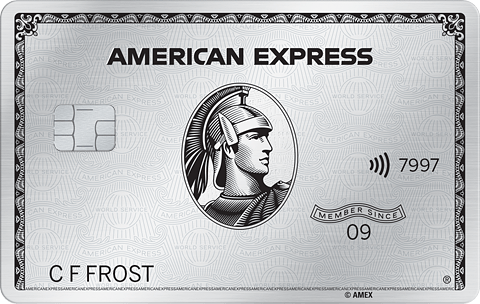



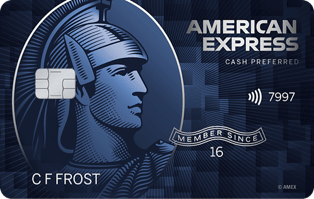

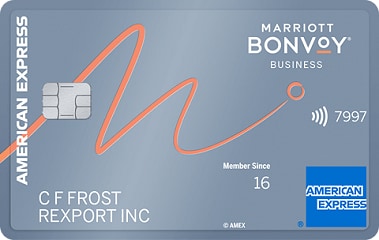

![Capital One Quicksilver | $4000 | July 2013 [AU]](https://ecm.capitalone.com/WCM/card/products/quicksilver-card-art.png)
![Capital One Venture X | $40,000 | September 2023 [AU]](https://ecm.capitalone.com/WCM/card/products/venturex-cg-static-card-1000x630-2.png)
![Chase Amazon Prime | $15,900 | March 2020 [AU]](https://creditcards.chase.com/content/dam/jpmc-marketplace/card-art/prime_visa.png)

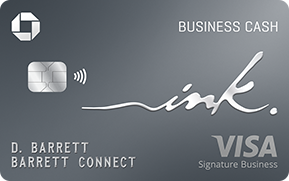











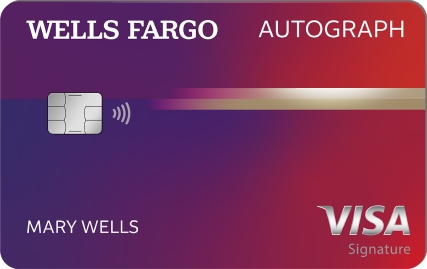













- Mark as New
- Bookmark
- Subscribe
- Mute
- Subscribe to RSS Feed
- Permalink
- Report Inappropriate Content
Re: How does FICO know to penalize for not doing AZEO??
@mortimerwereback wrote:
@Anonymalous wrote:
@mortimerwereback wrote:Yea that make sense @GZG. I could see it tracking across months... If a balance is reported in a given month and then the next month it goes to all zero, it would mean that each month is counted individually, and one wouldn't be "all zero" until the last card reports for a given month. Because there has to be something tracking balances and a trigger for 0.00.
That's a really good question regarding your April. Kinda ties into my question about this month. Both are related to how FICO's algorithm tracks "all zero" or balances. I guess you'd see one of two actions: 1. the day the $10 balance reports in April, the algorithm recognizes you are "no longer" all zero and perhaps you get a few points, or 2. No score changes will occur until your second and third cards generate statements.
But the more I think about, after reading @SouthJamaica's reasonings, the more I think any point increase or decrease is triggered soon after a card goes to $0.00, lets say it was the last card carrying a balance (as in my case). OR in your case, after all cards have been zero, a card suddenly reports a balance, and then a few days later you're given a few points. If not, it would mean that FICO was tracking each calendar month individually. Which I feel like wouldn't make sense since score increases and decreases always take into account recent history. For example, I have two EX inquiries and I get a third and my score gets dinged. Or I have a balance, and I reduce it to below 49% aggregate and I receive a point increase.
I really hope that the small charge I put on my Navy MR clears before the 14th midnight. I put the charge around 1 am EST on the 12th. Else, I'm gonna see a -20pt drop again across my FICO 8s (if what I wrote above is how AZEO functions). Which is going to suck big time. Crossing fingers!
You're stuck on this idea of months, but that's not how credit scores work. A credit score is an instant in time. When someone pulls your report, a score is generated in that moment. If someone else requests your score 2 seconds later, a completely new score is generated. There isn't this score in the background that periodically updates. It's more accurate to say that, in between requests, you don't have a score.
The way credit reporting services work might be causing some confusion, because the bureaus apparently send push notifications when there's a significant change to your report, like a new card reporting. But if one of those trigger events results in the credit monitoring service requesting a score, it's still based on that instant in time. If someone pulls your report in between trigger events, the score that's generated for them might be different than the score was generated for either of the bracketing trigger events, because there are scoring components that don't trigger notifications (like passing an age threshold).
And even if your Navy card reports as $0, does it really matter? If no lender pulls your score in the couple weeks before your FNBO card reports, then nobody will know (or care) that your score would have been a little lower if they did pull your report in that interval.
Separately, I can confirm that my Navy More Rewards definitely counts for AZ and AZEO purposes, as well.
Thanks for your input @Anonymalous. Lots of good insights!!
Yes, it matters as I'm rebuilding and I'd previously received an "all zero" penalty and it was a large point drop after months of hard work that has still not fully recovered.
Not so. It recovers as soon as one card reports a balance.
And so, absolutely, I'd like to not have it happen again if I can help it. Your statement is precisely why I'm asking this question. No lender is going to pull my report before FNBO reports and so I agree with you there, but that does not change the fact that if left at all zero, I will receive a penalty. The question is the when (snapshot in time, monthly, however it's tracked). And if that penalty happens after Navy reports, but before I can let a balance report on FNBO then, it's going to suck big time finally being in the 670+ for FICO 8s only to drop back down to 655+, dragging everything else down with it.
Ways to stay on top of which accounts have been updated in your report: (a) experian.com paid service which gives you daily updated report (b) Credit Karma free service which gives you daily updated report. No doubt there are others.
With that all said, it's not the end of the world, I get it.
But what's been extremely gratifying for me in this rebuild has been maintaining a score, and then levelling it up a few points, and then rinse and repeat. And that's what gotten 2 of 3 of my FICO 9s in the 700+ range, which ultimately was (I believe) the reason for many of my approvals. The little wins matter so much that the big dips really take the wind out of your sails.































Total revolving limits 569520 (505320 reporting) FICO 8: EQ 689 TU 691 EX 682
- Mark as New
- Bookmark
- Subscribe
- Mute
- Subscribe to RSS Feed
- Permalink
- Report Inappropriate Content
Re: How does FICO know to penalize for not doing AZEO??
@mortimerwereback wrote:
@Anonymalous wrote:
@mortimerwereback wrote:Yea that make sense @GZG. I could see it tracking across months... If a balance is reported in a given month and then the next month it goes to all zero, it would mean that each month is counted individually, and one wouldn't be "all zero" until the last card reports for a given month. Because there has to be something tracking balances and a trigger for 0.00.
That's a really good question regarding your April. Kinda ties into my question about this month. Both are related to how FICO's algorithm tracks "all zero" or balances. I guess you'd see one of two actions: 1. the day the $10 balance reports in April, the algorithm recognizes you are "no longer" all zero and perhaps you get a few points, or 2. No score changes will occur until your second and third cards generate statements.
But the more I think about, after reading @SouthJamaica's reasonings, the more I think any point increase or decrease is triggered soon after a card goes to $0.00, lets say it was the last card carrying a balance (as in my case). OR in your case, after all cards have been zero, a card suddenly reports a balance, and then a few days later you're given a few points. If not, it would mean that FICO was tracking each calendar month individually. Which I feel like wouldn't make sense since score increases and decreases always take into account recent history. For example, I have two EX inquiries and I get a third and my score gets dinged. Or I have a balance, and I reduce it to below 49% aggregate and I receive a point increase.
I really hope that the small charge I put on my Navy MR clears before the 14th midnight. I put the charge around 1 am EST on the 12th. Else, I'm gonna see a -20pt drop again across my FICO 8s (if what I wrote above is how AZEO functions). Which is going to suck big time. Crossing fingers!
You're stuck on this idea of months, but that's not how credit scores work. A credit score is an instant in time. When someone pulls your report, a score is generated in that moment. If someone else requests your score 2 seconds later, a completely new score is generated. There isn't this score in the background that periodically updates. It's more accurate to say that, in between requests, you don't have a score.
The way credit reporting services work might be causing some confusion, because the bureaus apparently send push notifications when there's a significant change to your report, like a new card reporting. But if one of those trigger events results in the credit monitoring service requesting a score, it's still based on that instant in time. If someone pulls your report in between trigger events, the score that's generated for them might be different than the score was generated for either of the bracketing trigger events, because there are scoring components that don't trigger notifications (like passing an age threshold).
And even if your Navy card reports as $0, does it really matter? If no lender pulls your score in the couple weeks before your FNBO card reports, then nobody will know (or care) that your score would have been a little lower if they did pull your report in that interval.
Separately, I can confirm that my Navy More Rewards definitely counts for AZ and AZEO purposes, as well.
Thanks for your input @Anonymalous. Lots of good insights!!
Yes, it matters as I'm rebuilding and I'd previously received an "all zero" penalty and it was a large point drop after months of hard work that has still not fully recovered. And so, absolutely, I'd like to not have it happen again if I can help it. Your statement is precisely why I'm asking this question. No lender is going to pull my report before FNBO reports and so I agree with you there, but that does not change the fact that if left at all zero, I will receive a penalty. The question is the when (snapshot in time, monthly, however it's tracked). And if that penalty happens after Navy reports, but before I can let a balance report on FNBO then, it's going to suck big time finally being in the 670+ for FICO 8s only to drop back down to 655+, dragging everything else down with it.
With that all said, it's not the end of the world, I get it.
But what's been extremely gratifying for me in this rebuild has been maintaining a score, and then levelling it up a few points, and then rinse and repeat. And that's what gotten 2 of 3 of my FICO 9s in the 700+ range, which ultimately was (I believe) the reason for many of my approvals. The little wins matter so much that the big dips really take the wind out of your sails.
My understanding is that any penalty on FICO 8 or FICO 9 from all zero or from too high a percentage reporting a balance (in my case it was 2 of 2) will resolve itself the next cycle. All balances being equal to the original AZEO and no other unrelated milestones should bring scores exactly to where they were before for 8 and 9. I can confirm the penalty for too many reporting resolved itself the next cycle. As others have said though when your cards report is important. All of 3 of mine (2 cap one and one discover) currently report my statement closing balance anywhere from 1-5 days after closing (it varies month to month how long it takes to report but it's usually 2-3 days after close). Apple closes at the end of the month along with reporting that balance and US Bank reports the end of month balance regardless of closing date. Chase reports every time your balance goes to zero and is not ideal to be the lone balance carrying card if doing AZEO. Not sure which other banks report at odd times.
June 2022 FICO 8:



June 2022 FICO 9:



June 2022 FICO 10:



June 2022 FICO 10T:



July 2025 FICO 8:



July 2025 FICO 9:



July 2025 FICO 10:



July 2025 FICO 10T:



